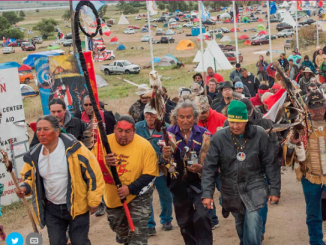A study released Apr. 3 by the Canadian Centre for Policy Alternatives found the 86 wealthiest Canadians have the resources to purchase the entire province of New Brunswick.
The report, Outrageous Fortune: Documenting Canada’s Wealth Gap, is authored by senior CCPA economist David Macdonald, and highlights the growing gap between the wealthy and the rest of the Canadian population.
“Wealth concentration is the result of income inequality…that builds up as people at the top end get paid a little more and over time they end up with a lot more wealth,” said Macdonald.

The wealthiest 86 Canadians represent only 0.002 per cent of the population but would be able to buy every single piece of New Brunswick including the assets of all the people in the province.
“Even if you are making 3 or 4 million dollars a year you can still not make it to the ‘wealthy 86’,” said Macdonald.
KEY FINDINGS:
- The wealth gap is bigger than the income gap. Almost 70 per cent of all wealth belongs to the wealthiest 20 per cent.
- The 86 wealthiest Canadians hold the same amount of wealth as the poorest 11.4 million Canadians.
- Only 10 of the 100 highest paid CEOs in Canada are part of the ‘wealthy 86’ and all 10 either founded or are related to the founder of the company.
Closing the Gap
The report recommends increasing income taxes for the wealthiest Canadians as well as increasing the inclusion rate on capital gains. The wealthiest Canadians earn most of their income from capital gains instead of a paycheque.
“For the ‘wealthy 86’ things like changes in top income tax brackets don’t really affect them. What would affect them is capital gains rates and capital gains inclusion rates. Changing the capital gains inclusion rate would have an effect on wealth,” said Macdonald.
Capital gains is income earned on assets like investments and property. The income earned on these assets is taxed at a much lower rate than income tax, which means that wealthy Canadians that earn most of their income from capital gains pay less in taxes than Canadians who earn the same amount through a paycheque.
Canada’s inclusion rate ranks globally in the middle; it isn’t as high as France or Germany but it is higher than countries like Austria where there is no inclusion rate.
The study confirms that even the best-paid Canadians have no chance of ever saving enough money to become a part of the most wealthy group of citizens.
“What is interesting about this study is I looked at the portion of the top CEOs who are also on the ‘wealthy 86’ and it turns out there is essentially no overlap. If you are a well-paid CEO there is just no way that you can save enough money even as one of the best-paid CEOs in the country to become part of the ‘wealthy 86’. The only way you make it into the ‘wealthy 86’ is if your father founded the company, otherwise you can’t save enough,” said Macdonald.
To be a member of the ‘wealthy 86’ you may have to come from a long line of rich nepotists.

OCAP comments on the report
The Ontario Coalition Against Poverty (OCAP) is a prominent anti-poverty organization based in Toronto. John Clarke is one of the leaders of OCAP and is known for direct-action campaigns such as the occupation of Toronto city hall to demand more shelter space in Feb. 2013. Clarke believes the report is more evidence of what is already known.
“The study is a confirmation of what people see around them…the rich are getting richer and the poor are getting poorer. At the highest end of the scale, people are making unheard of amounts of wealth so there isn’t any political will amongst the people in political power to change that, on the contrary their role is to facilitate it,” said Clarke.
Clarke believes the report is representative of a continuing trend of wealth accumulation for the rich that will have tough implications for lower income Canadians.
“It says something even more incredible about where society’s going given that this is happening at a time when there is a pervasive agenda of austerity that’s leading to people at the lowest end of the income scale being devastated and yet at the same time, the accumulation of wealth amongst handfuls of people is at record breaking and obscene levels,” said Clarke.
Clarke’s sentiments suggesting the rich getting richer and the poor are getting poorer are supported by the facts of David Macdonald’s report. The report’s findings show that the richest Canadians continue to make gains in wealth while the poor do not.
“When we look at who’s done the best on the wealth side since 1999 it’s very clear the vast majority of gains have gone to the top 20 per cent and in this case the top 86 people, where you see very big gains. And at the bottom you see little or no gains. Debt piles up for the middle and low income Canadians and wealth piles up at the top,” said Macdonald.
For the accumulation of the wealth to be slowed or stopped at the top end Clarke believes it is necessary for lower and middle income Canadians to confront the problem directly.
“The trend will continue until the trend is stopped. But to believe there is going to be some act of self-policing on the part of the rich would be a naive hope in my opinion,” said Clarke.
SEE ALSO:
- Read the entire report on the CCPA website
- Visit the website of the Canadian Centre for Policy Alternatives
- Visit the blog of the Canadian Centre for Policy Alternatives
- Visit the Ontario Coalition Against Poverty (OCAP) website for more information about their activities
- Get in touch with David Macdonald through Twitter
- Get in touch with John Clarke through Twitter

